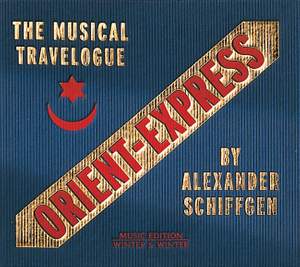This musical diary tells the story of the Orient Express's trip from Paris to Constantinople in June of 1905. The prestigious guests gather at Paris Est and get ready to depart, without noticing that a herald from the Ottoman Empire is among them. As the train sets off, echoes of street music remind the men of past nights spent in Paris. Puccini, Strauss, Bizet, Schubert and Brahms are the traveling companions on this journey toward Europe's Southeastern extremity. It is a trip to another world, a thrilling experience, filled with music from Paris salons and from the Balkans. Soon after the train's departure, the pianist in the »Traveler de Luxe« compartment plays music from Giacomo Puccini's opera »La Bohème«. Frenchmen, Englishmen, Austrians, Germans and Hungarians are aboard the eastbound train. In Munich, the travelers are welcomed by a brass band. Their journey then takes them to the imperial Vienna, where the première of Georges Bizet's »Carmen« has enjoyed great success. In the Vienna train station, the people rushing by and the racket caused by modern machines contrast with beautiful waltz music. Hungarian dances now resound throughout the train and as it reaches Budapest, the train's orchestra interprets Ivanovici's »Donauwellen«. The first Bulgarian voices can be perceived. Some Gypsies transform their compartment into a dance floor. A woman who is travelling alone asks for some more Puccini and listens to the pianist, lost in thought. In Bulgaria, the train comes to a halt in the middle of nowhere. Women sing as they work in the fields. A festive atmosphere develops on the countryside; the Gypsies begin to play and dance. The train nevertheless carries on with its voyage, approaching Constantinople at a steady pace. A journey across the Western World slowly comes to an end and in the train station in Constantinople, we hear music from the same accordion which we have heard all the way back in Paris.





